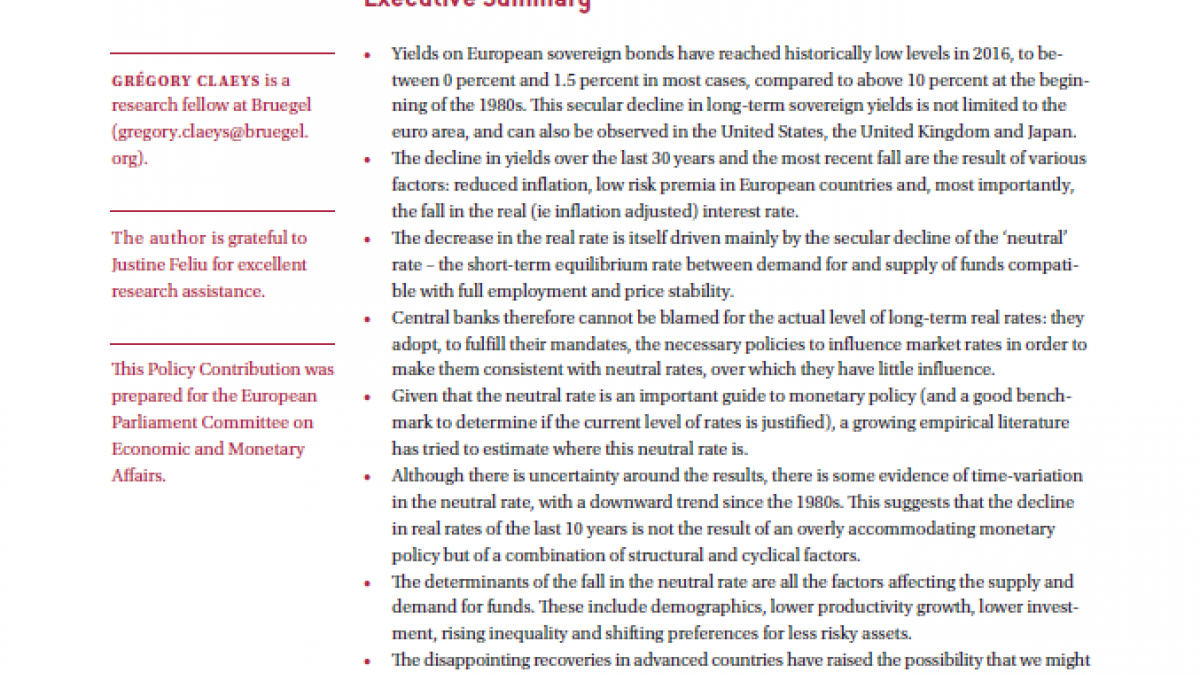Low long-term rates: bond bubble or symptom of secular stagnation?
Yields on European sovereign bonds have reached historically low levels in 2016. This secular decline in long-term sovereign yields is not limited to

Yields on European sovereign bonds have reached historically low levels in 2016. The goals of this paper are to understand why interest rates are currently so low and to determine if this level is justified by fundamental factors, or if rates are artificially low because of unconventional monetary policies.
The decline in yields over the last 30 years is the result of various factors: the fall in inflation, lower risk premia in European countries, and most importantly the fall in the real interest rate driven by a secular decline in the 'neutral' rate.
Consequently, central banks are not fully responsible for the actual level of long-term real rates, because they adopt, to fulfil their price stability mandates, the necessary policies to influence market rates in order to make them consistent with neutral rates, over which they have little influence.
Low rates are the symptoms of our diseases, not their cause. It is therefore crucial to tackle the structural causes behind the fall in long-term rates, but also to find solutions for the harmful consequences that lower equilibrium rates could have for the conduct of monetary policy.



